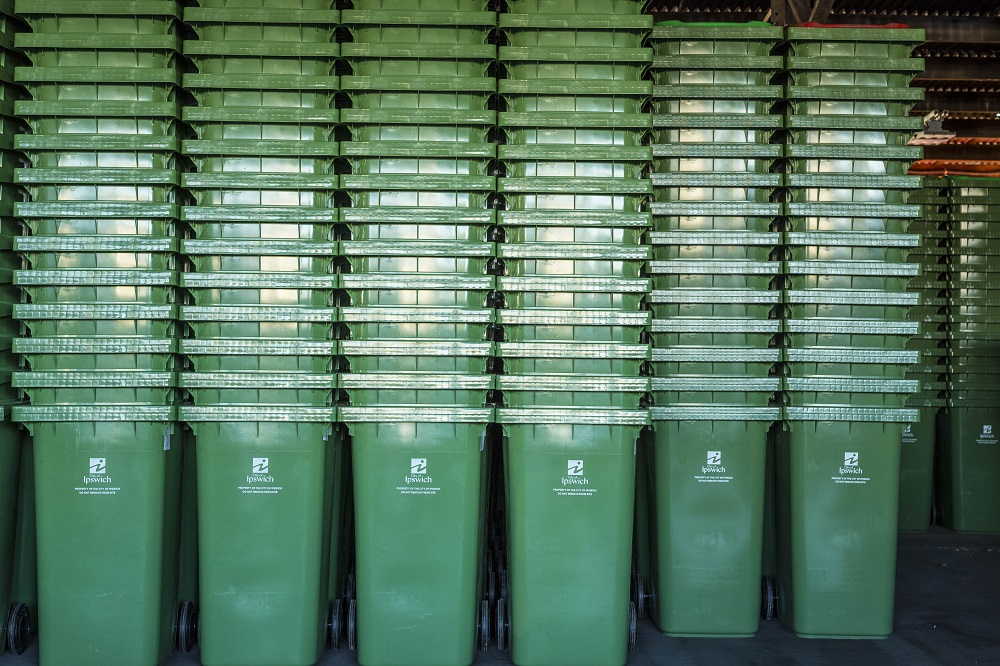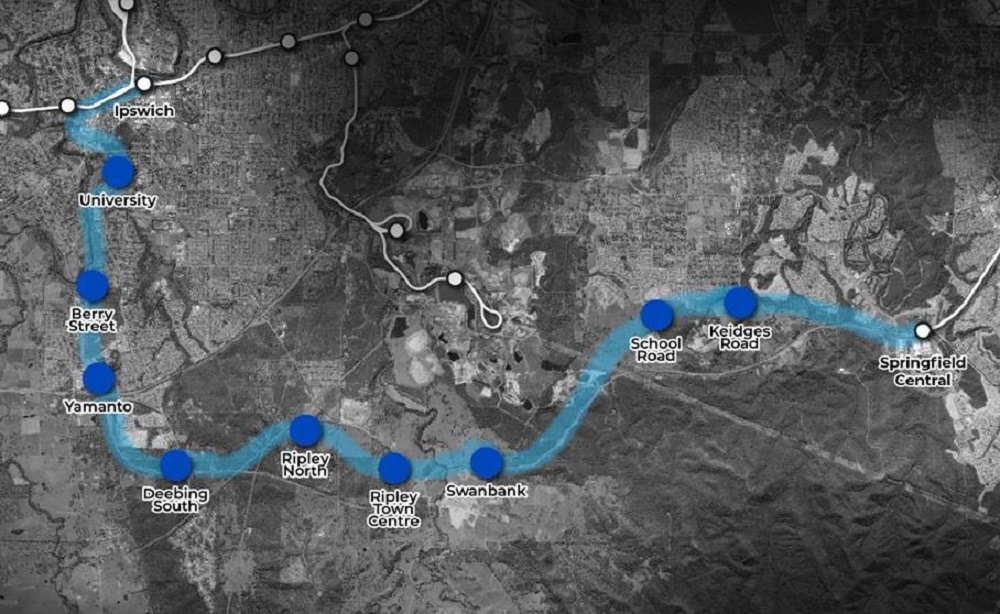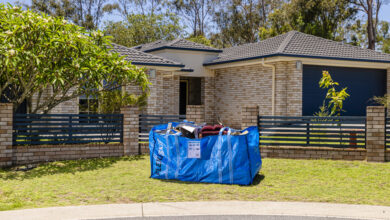Ipswich City Council’s major project-of-the-future – the Ipswich to Springfield public transport corridor – and its waste management and recycling challenges strategy have been recognised by Infrastructure Australia.
Infrastructure Australia today (Fri 26 Feb) launched its 2021 Infrastructure Priority List – a comprehensive investment roadmap to support Australia’s recovery from the COVID-19 pandemic, the 2019–20 bushfires and the recent and ongoing drought.
The list provides a pipeline of investments ready for delivery and nationally significant priorities for Australia’s governments to progress in the near, medium and longer term.
Providing evidence-based advice on critical gaps and investment opportunities, this year’s list considered infrastructure proposals that respond to the many challenges Australia has been facing, including the recent and ongoing drought, the 2019–2020 bushfires and the COVID-19 pandemic.
Two Ipswich projects were added to the list, providing an opportunity for strategic infrastructure investment: the proposed 25km public transport corridor known as I2S, and council’s waste and recycling focus.
Mayor Teresa Harding said the listing represented an important step forward to support Ipswich’s unprecedented population growth, following productive discussions between council and the State and Commonwealth Governments.
“Ipswich is the fastest-growing city in Queensland, and these Infrastructure Australia listings have recognised that significant investment will be necessary to maintain our residential amenity and keep our growing community connected to essential services and economic opportunities,” she said.
“Council has kept ahead of the curve, investing $1.1 million in business cases for major transport projects since 2017, and adopting our landmark Waste and Circular Economy Transformation Directive on 3 December, 2020.
“I have thanked the State Government for committing $1 million to the next stage of I2S and to establishing a Joint Waste Taskforce with council.
“It was wonderful to welcome Deputy Prime Minister Michael McCormack to Ipswich on 11 February and hear him describe our suburbs as some of Australia’s most liveable areas.”
Last year council completed the first stage of the project analysis for I2S, however in order to keep the project progressing, a detailed options analysis now needs to be completed, which will cost around $2.5 million.
The State Government committed $1 million to the analysis in the lead-up to the 2020 election, conditional on council and the Commonwealth Government funding the remaining $1.5 million.
“Our fastest growing communities between Ipswich, Ripley, Redbank Plains and Springfield will rapidly transform over the coming years and residents need to be connected to jobs, education and other public services,” Mayor Harding said.
“If we do nothing, the local road network will fail by 2031 and it will cost the national economy more than $1 billion in productivity losses by 2036.”
The I2S public transport corridor would include up to nine new rail stations between Ipswich Central and Springfield Central.
Mayor Harding said council and the community recognised I2S as the most significant project as it would benefit Ipswich as well as the broader south-east region, Queensland and the nation.
“Our city’s population is projected to grow at four per cent per annum (from 230,000 now to over 500,000 by 2041). This compares to 1.6 per cent for Queensland and 1 per cent for Australia,” she said.
“With approximately 70 per cent of the population growth in Ipswich occurring between Ipswich and Springfield, this public transport corridor is vital to easing the burden on our road network and keeping our community moving.
“This is nation building infrastructure. Locally, it will ensure the people of Ipswich keep our great lifestyle as the region grows and deliver jobs and vital services.
“There will be improved travel times, economic and employment opportunity along the corridor, diversified housing supply and reduced congestion.”

Ipswich City Council announced in late 2020 it was taking innovative steps to cut waste, improve resource recovery and drive the circular economy.
Councillors unanimously backed a new strategic and operational approach to managing and influencing systemic changes across waste, resource recovery and the circular economy, to deliver better outcomes for the city and its residents towards 2030.
Mayor Harding said the Waste and Circular Economy Transformation Directive marks a significant and positive step forward on waste industry impacts and opportunities for the Ipswich local government area, which disposes a large proportion of South East Queensland’s and the State’s waste (55 per cent and 42 per cent respectively in 2019-20).
The directive details the myriad of challenges currently faced by council in dealing with the growing sector. It outlines 10 guiding principles that will inform council’s strategic and operational activities over the coming years and provides a platform for a concerted and coordinated effort across waste, resource recovery, recycling and the circular economy.
Infrastructure Australia recognised that it would translate into positive outcomes for the people of Ipswich, who had been impacted for decades by previous poor decisions on waste management.
“In 2018-19, the eight privately owned and operated landfills located in Ipswich received approximately 4.23 million tonnes of all waste generated by Queenslanders, and our community received little or no benefit,” Mayor Harding said.
“Waste disposal issues in our region are long-running and well known to our stakeholders. At the same time, the evidence base is building for the economic and environmental benefits of the circular economy model.”
Council had recently joined with the State Government to establish a joint waste taskforce.
“Waste and resource recovery present both massive challenges and opportunities for our growing city and I look forward to welcoming the Premier and her colleagues to Ipswich in the future to further understand these.
“We’re committed to working with the State Government to establish a joint taskforce so we can collaboratively address the long-standing issues faced by Ipswich residents.”
Mayor Harding said Infrastructure Australia’s acknowledgment of council’s directive “recognised waste management as an opportunity for investment and improved infrastructure”.
She welcomed the advance of the national waste and recycling management initiative.
She said council was committed to working with Infrastructure Australia in relation to all regionally significant projects, including a second Bremer River crossing, which would dramatically cut congestion in the CBD and assist in bring business back to the city centre; plus defence manufacturing projects.
The Queensland Government’s Cunningham Highway upgrade, taking in the Yamanto interchange to Ebenezer Creek, has remained a priority initiative. It will involve upgrades to a 4.75km section of the Cunningham Highway, including the Amberley interchange, with the government to complete its business case development.
Read More
>>>Ipswich leads the way with landmark waste and circular economy directive



All I have to say is Stop the rail link cutting into farmland ppls livelihood s are at risk
Knowing icc u prob won’t post this
This is a commuter line I don’t think it will effect any farm land. Most of the area has been set aside for future Housing development.
Can we fix the problems with the Pine Mountain Road ( Fernvale Rd) corner traffic problems, we have so much traffic it’s dangerous for not only residents but for school children trying to cross. So many hoons use this road we know as we had one hit our fence lucky it was late at night and no one was walking as they mounted the footpath. We need a safety barrier around this corner before a tragedy happens.